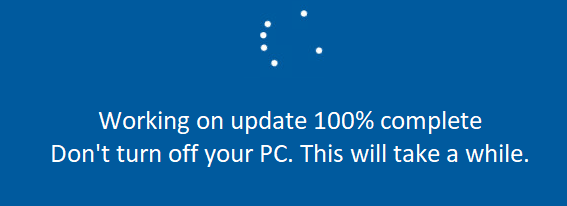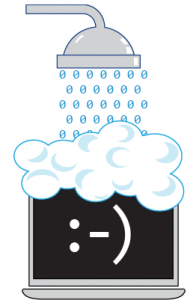
All educator laptops run on the Windows 11 operating system. The laptops do not restart themselves regularly, but restarting does provide important benefits. Users should restart their devices regularly because:
Microsoft issues monthly updates for Windows 11
These updates fix bugs, address security vulnerabilities and add new functions. They are delivered in the background but often require a manual restart. Sometimes they prompt you to restart your computer, but often they don’t.
Failure to restart can cause your computer to malfunction—typically when you are in the middle of an important presentation or facing a deadline. The only surefire way to guarantee that an update doesn’t ruin your day is to restart your computer regularly.

Restarting resets your computer’s memory
When people get dirty they take a shower. Showers are good for you, but really, really bad for your computer. So instead of putting your PC in the tub try restarting it. Restarting your computer can boost performance by clearing away cached and corrupted files from its memory.
Pick A Date
Think of restarting your laptop as a weekly chore, like watering houseplants or cleaning the mirror in the bathroom. Pick a day, say Friday, and restart every week on that day. Make a habit of it, and you will spend less time staring at spinning dots and a saucy message assuring you that your update is 100% complete.



